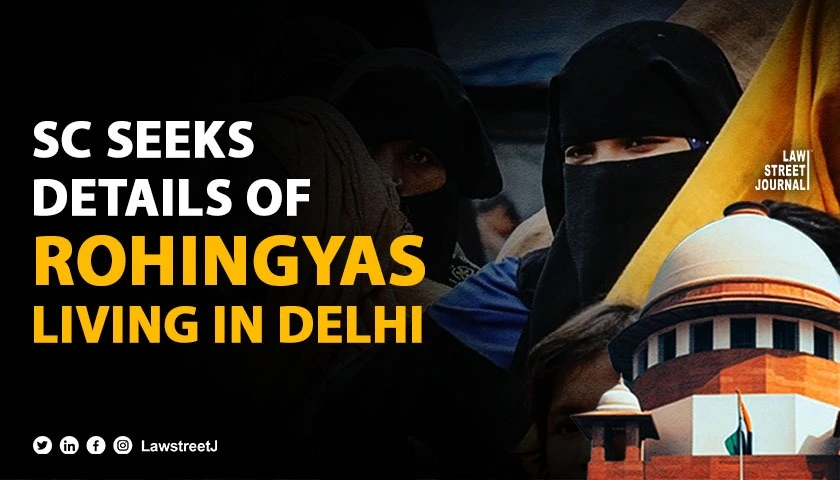NEW DELHI: The Supreme Court has asked an NGO to provide details in connection with the place of residence of Rohingyas in Delhi.
The court was hearing a plea seeking a direction for admission of Rohingyas children to school.
SC Seeks Rohingya Residence Details Amid School Admission Row
A bench of Justices Surya Kant and N Kotiswar Singh asked senior advocate Colin Gonsalves, representing the NGO, to file an affidavit as to where the Rohingyas are staying and the pockets of their residence.
Through the PIL, NGO Rohingya Human Rights Initiative asked the court to quash a circular issued by Delhi’s AAP government on December 23, 2024, prohibiting government schools from admitting children of Rohingya refugees.
Delhi Govt’s Circular on Rohingya Students Sparks Supreme Court Hearing
It asked the court to issue a direction to the Delhi government to grant admission to all Rohingya children free of cost whether or not the family holds an Aadhar card.
The bench, however, sought the affidavit from the NGO and fixed the matter for hearing in the on February 10, 2025.
During the hearing, the bench told the petitioner's counsel that it is not keen to entertain the plea.
"The prayer pertains to Rohingyas in Delhi, why don't you go to Delhi High Court," the bench asked Gonsalves.
The counsel said that there are 1,050 Rohingya refugees in Delhi and they are majorly concentrated in areas like Shaheen Bagh and Khazuri Khas. The bench asked Gonsalves to bring on record a detailed affidavit, whether they are living in normal residences or they are confined to camps.
"We will mould the nature of relief," the bench said.
The counsel said there was an urgency as "exams will start and they will be left out".
The bench said, "Exam will only be there if they are admitted".
The counsel said the identification was being done to prevent them from going ahead. He said that he would file all the details sought by the bench. The Delhi government circular directed for strict adherence to admission procedures and to verify students' documents to prevent the enrolment of illegal migrants.

















